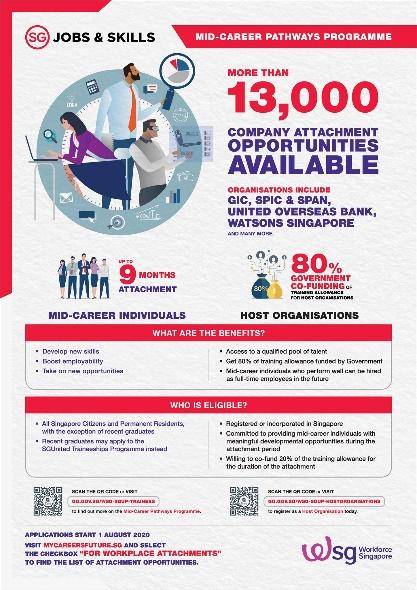TRIPARTISM
Tripartism in a Complex World
scroll to explore
The workings of tripartism today have been further complicated by the rise of the gig economy, green jobs and wage stagnation among low-income workers. These add to the complexity of the relationship and roles of the government, employers and workers’ unions.
Gig Economy and Platform Workers
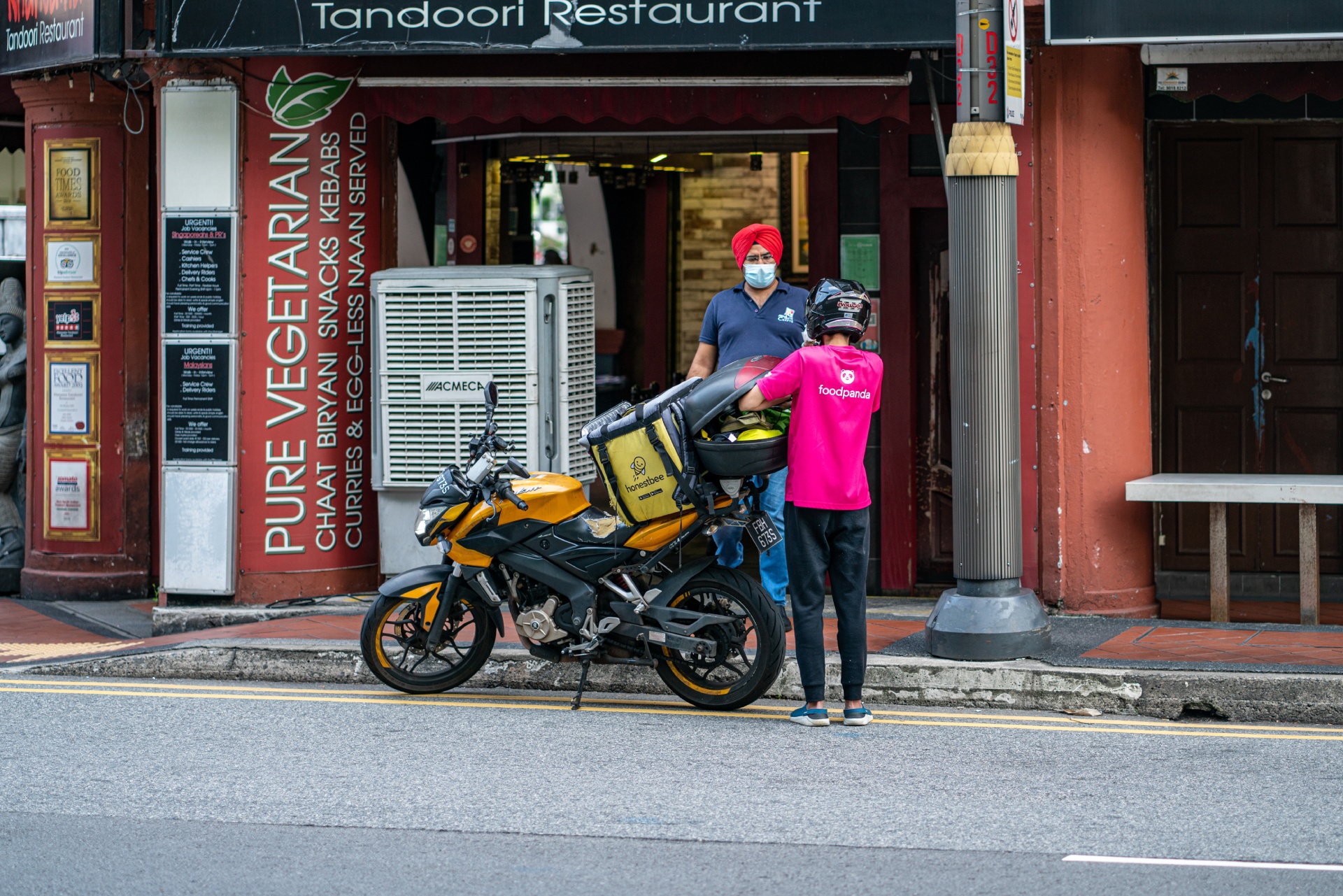
Rider from food delivery service foodpanda outside restaurant in Little India, 2021.
Ride-hailing firms in Singapore have grown in prominence since 2013, disrupting the transport industry as they were cheaper and more convenient than traditional licensed taxi services. Initially, the key players in the ride-hailing scene were Uber and Grab. The two companies eventually merged in 2018. Currently, Grab competes with Gojek, Tada and Ryde.
Beyond ride-hailing, demand for food delivery service also grew significantly over the years. The major companies are GrabFood, foodpanda and Deliveroo.
Platform workers, such as drivers and food delivery riders, are not classified as employees, even if they work full-time for the platform companies. As of June 2024, they are classified as independent service providers or self-employed persons (SEPs), just like business owners or providers of ad-hoc consultancy services. This classification has significant repercussions.
There are several differences between SEPs and employees. First, the Employment Act, which stipulates mandatory paid leave, rest and other employee rights, does not apply to SEPs. Second, employees and employers are required to make mandatory contributions to the Central Provident Fund (CPF), which provides for retirement income and medical expenses. However, SEPs do not receive CPF contributions from service buyers.
Platform workers are also not allowed to join unions or engage in collective bargaining since SEPs could not form a trade union in Singapore.
Policymakers have introduced changes. While not specific to platform workers, the tripartite partners collectively formed a Tripartite Workgroup for Self-Employed Persons in 2017 to identify the common challenges faced by SEPs and propose recommendations. These include establishing standards for engaging the services of SEPs, providing insurance, extending the Tripartite Alliance for Dispute Management’s voluntary mediation services to SEPs and supporting SEP associations in developing occupation-specific competency frameworks.
The NTUC set up the National Delivery Champions Association in December 2020 to represent delivery riders, including on the issue of providing insurance coverage for income disruptions. The welfare of platform workers was raised in Parliament in February 2021, with one Member of Parliament (MP) suggesting that the government could consider allowing NTUC to represent such workers or providing them with some statutory protection under the Employment Act. In September 2021, the Advisory Committee on Platform Workers was initiated by the Ministry of Manpower to strengthen protections for platform workers, including financial compensation in case of work injury.
The Committee provided 12 recommendations. The Government has accepted all recommendations and will progressively implement the initiatives, including enacting a new legislation. At the same time, the Digital Platforms Industry Association (DPIA) was launched during the COVID-19 pandemic for platform companies to “come together to represent the interests of [their] rider partners and merchants”. As of October 2022, several platform companies, including Grab and foodpanda, were providing personal accident coverage insurance for their platform workers.
Click here to read a case study on Improving the Welfare of Platform Workers in Singapore.
Wage Stagnation Among
Low-Income Workers
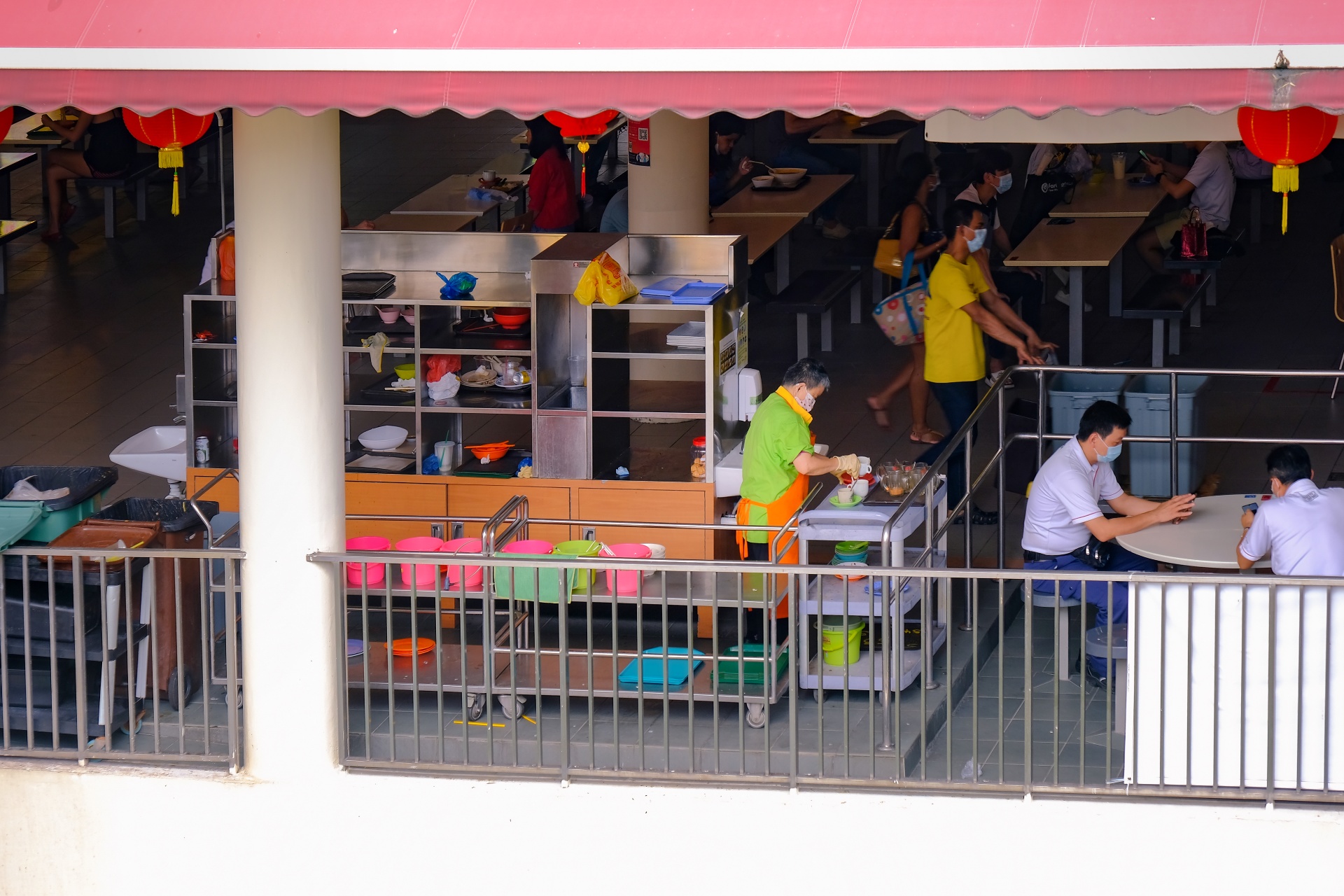
Tray return sorting station at Tiong Bahru hawker centre. Cleaner seen clearing crockery trolley. People wearing masks during outbreak, 2021.
Since independence, the Singapore government has prioritised the value of “self-reliance” – that individuals should take responsibility for their own needs, failing which they should seek family or community support, before turning to the government as a last resort.
However, stagnant wages proved to be a key policy concern since the early 2010s. Of particular concern was “cheap sourcing” – the practice of outsourcing and competition for contracts that led to depressed wages, especially for cleaners.
To combat this, a Tripartite Cluster for Cleaners (TCC) was formed with representatives from the government, unions, service buyers and cleaning service providers. According to former Labour MP, Zainal Sapari, the TCC’s initial thinking was to set a single wage floor of $1,000 for cleaners. However, then NTUC Secretary-General Lim Swee Say preferred a wage ladder that would correspond to workers’ skills, productivity and job responsibilities.
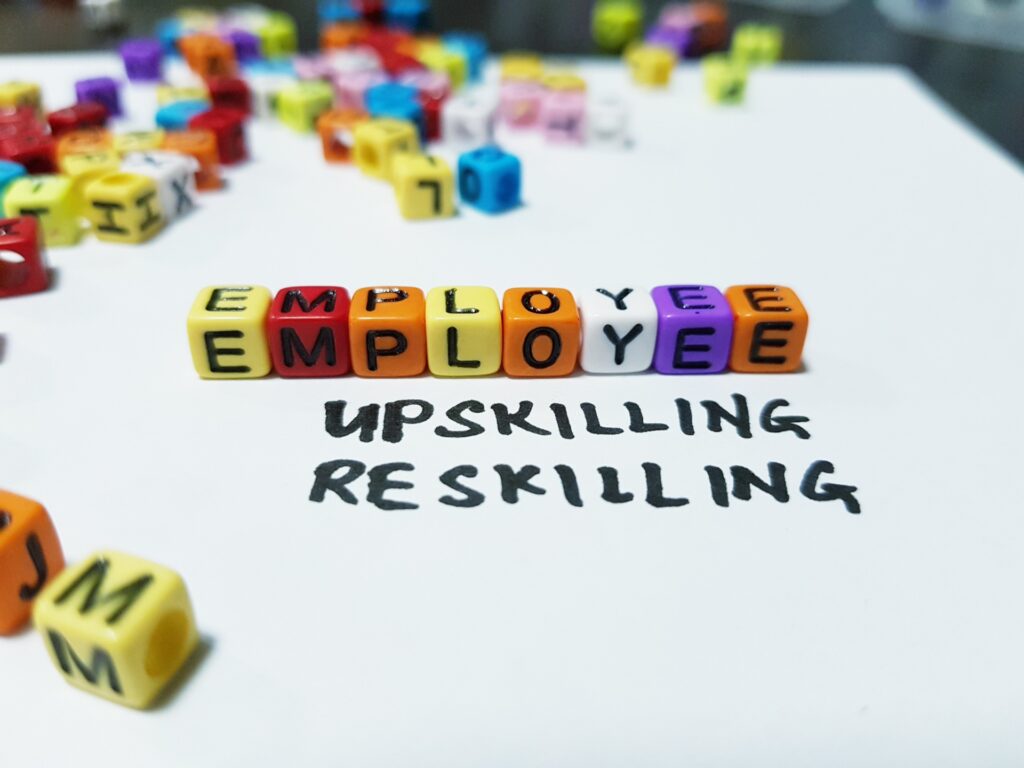
In 2012, the TCC recommended a “Progressive Wage Model” (PWM) to provide a pathway for cleaners’ wages to progress alongside training and productivity improvements. It called for a starting basic wage of at least $1,000 for the most common types of cleaning jobs, with higher wages pegged to higher skills and job responsibilities. The PWM aimed to address the concern that a wage floor delinked from productivity would erode price competitiveness and distort the market.
The PWM is distinct from a legal minimum wage (as seen in other countries) in that it is tied to training, it is not mandated by law and it does not set a universal minimum for all workers.

Cleaner at tray return station at Kampung Admiralty hawker centre, 2021
PWM wage ladders were to be updated yearly, with the lowest wage floor for cleaners stipulated to increase gradually to $1,312 in 2022. The forward schedule of increases (up to 2028) gives cleaning companies certainty and can be factored into tender pricing for cleaning contracts. From 2020, a mandatory PWM Bonus of at least two weeks of basic wages was introduced for local employees who had worked with the same cleaning company for at least 12 months.
In the initial phase of implementation, the PWM was voluntary. With the establishment of a new cleaning business licensing regime in 2014, PWM adoption became a requirement for all new cleaning contracts from September 2014, and for all cleaning contracts from September 2015. This meant that all local workers (Singaporeans and Permanent Residents) employed in outsourced cleaning jobs had to be paid a basic wage, initially set at $1,000 for a general cleaner and $1,600 for a supervisor. Cleaning firms were also required to send workers for training.
Besides cleaning, the security and landscaping sectors were also prone to “cheap sourcing”, with wages consequently low and stagnant. Subsequent implementation of the PWM in the security, cleaning and landscaping sectors benefited over 70,000 local workers. Between 2011 and 2016, the real median gross wages of full-time resident cleaners, security guards and landscape maintenance workers increased by 5.7%, 6.4% and 3% per year respectively, exceeding resident median work income growth of 2.3% per year.
Besides cleaning, the security and landscaping sectors were also prone to “cheap sourcing”, with wages consequently low and stagnant. Subsequent implementation of the PWM in the security, cleaning and landscaping sectors benefited over 70,000 local workers.
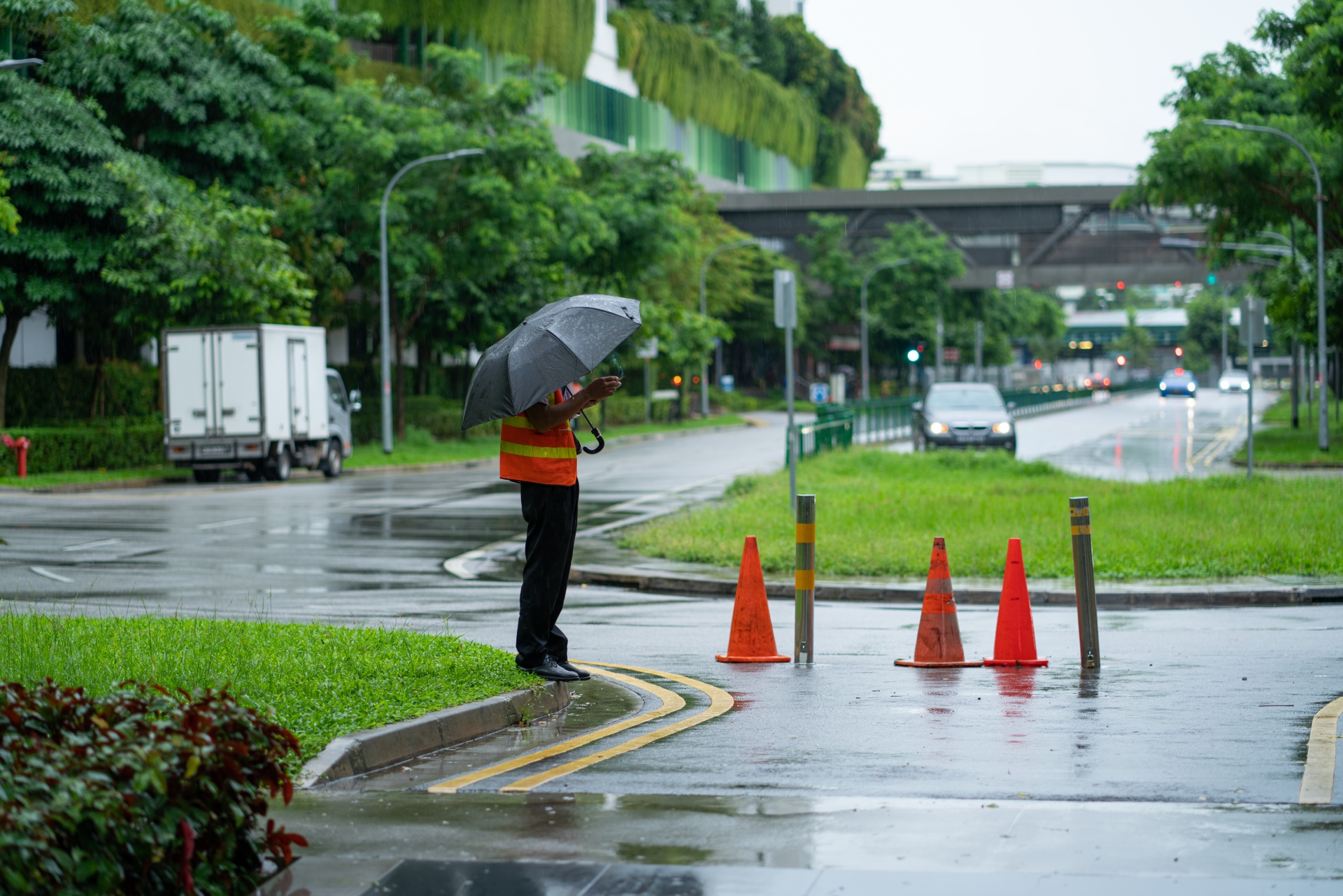
Security guard outside shopping mall in Yishun on a rainy afternoon, 2021.
Between 2011 and 2016, the real median gross wages of full-time resident cleaners, security guards and landscape maintenance workers increased by 5.7%, 6.4% and 3% per year respectively, exceeding resident median income growth of 2.3% per year.
At the 2021 National Day Rally, Prime Minister Lee Hsien Loong announced that the government would expand the PWM to more sectors, including retail, food services and waste management. It would also cover specific occupations across all sectors, beginning with administrative assistants and drivers.

A man and a woman take a photograph outside the National Gallery of Singapore, which had the Singapore flag projected on it to commemorate National Day, 2021.
He announced that the extended PWM and the tighter Local Qualifying Salary requirements would cover over eight in ten lower-wage local workers.
Click here to read a case study on Singapore’s PWM.
Green Jobs
Globally, 9.5 million out of 18 million jobs in the energy sector risk being lost in the transition to greener energy. They will be replaced by an estimated 17.4 million new jobs that may emerge in the green economy. Such a significant transformation requires structural planning and coordination between workers, employers and the government, including its economic agencies.
The tripartite partners have been looking into the relevance of workers’ skills as jobs are redesigned for a greener economy. The NTUC has formed Company Training Committees (CTC) to encourage employers to train their workers to meet new skill demands.

Solar panels in downtown Singapore
The Singapore National Employers Federation (SNEF) has called on employers to tap on existing government schemes such as the Mid-Career Pathways programme and the Singapore Global Executive programme to continue developing a core Singapore workforce in newer and upcoming industries.
